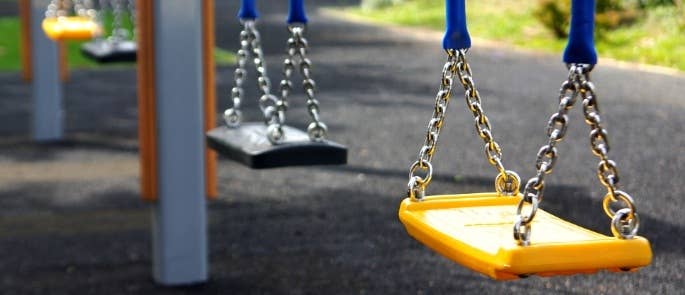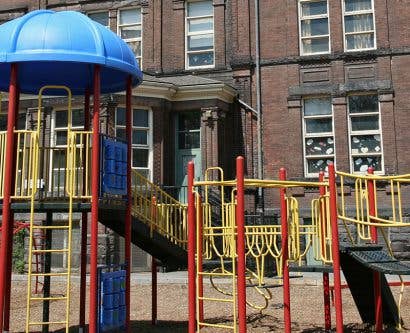How Does RIDDOR Apply to Schools?
In an ideal world, workplaces would not have to face any accidents or cases of ill-health. Unfortunately, these can and do happen even in the most cautious of places.
It’s important that you know how to respond appropriately if an incident occurs in your school. This includes reporting certain situations involving staff or students to the authorities where required.

Throughout this article, we’ll explain everything you need to know about RIDDOR in schools. It’ll clarify what situations are reportable and how to appropriately follow the necessary procedures.
What is RIDDOR?
RIDDOR stands for the Reporting of Injuries, Diseases and Dangerous Occurrences Regulations 2013. It requires businesses to keep records and report certain incidents to the Health and Safety Executive (HSE) that happen in relation to work. This also applies to schools, whether an accident happens to a member of staff or a student.
Not everything is reportable, but it’s important that you do record and report cases as required. Doing so enables authorities to hold workplaces accountable for failings in health and safety, as well as assess standards across the industry. This means they can prevent similar situations from occurring again and help keep people safe in the future.
Proper recording and reporting also enables you to evaluate your school’s procedures. It can help you to identify and correct any safety issues, so you keep the business compliant and everyone safe. Remember: failure to report an incident is breaking the law. It could result in serious consequences for your school.
Need a Course?
Our RIDDOR Training Course covers all aspects of the RIDDOR legislation so that the responsible person understands when, why and how to make a suitable report. You can also find a range of training courses for teaching staff here.
What Must Schools Report Under RIDDOR?
Only certain incidents are reportable under RIDDOR. The first criteria is that the incident must have happened in relation to the workplace and its related activities. For example, asthma that is triggered by a known irritant in the workplace is reportable. However, if an asthma attack is caused by a cold virus, then it’s unrelated to work and isn’t reportable.

Requirements surrounding reportable incidents differ between staff and students. RIDDOR specifically lists a variety of reportable cases involving people at work, while the specifications for students are broader.
| Reportable Cases Involving Staff | |
|---|---|
| The responsible person in your premises must report work-related incidents to the HSE that: |
|
| Specified injuries include:
|
These are also reportable if they result from acts of non-consensual violence in connection to work in a school. For example, if a student injures a teacher during a lesson. |
| Reportable occupational diseases include: |
|
| Reportable Cases Involving Students or Visitors | |
|---|---|
| The responsible person in your school must report accidents to the HSE that happen to students or visitors if: |
Students and visitors do not need to have specified injuries for these requirements to apply. Specified injuries apply to employees only. |
| The incident is reportable if it occurred in relation to: |
|
| If you are on the Early Years Register, you must notify Ofsted if there is: | An accident, injury, or death to a child on the school premises while they are under your care.
You do not need to notify Ofsted if the incident happens off the premises, to a child not in your care, or to anyone other than a child in your care. |
| If you are on the Childcare Register, you must tell Ofsted about: |
|
| Incidents that are not reportable include: |
You can find further guidance on work experience for schools in our dedicated article: Work Experience Guidance for Schools – Do I Need a Young Person’s Risk Assessment? |
| Reportable Dangerous Occurrences (Near Misses) | |
|---|---|
| You should also be aware that certain dangerous occurrences (near misses) are reportable, regardless of whether they may have involved a student or staff member. | These include:
|
Examples of Reportable Accidents at School
To get more of an idea of what may or may not be reportable to RIDDOR in schools, have a look at the following 3 examples.
Accident in school playground
A student is on one of the swings in the playground at lunch when a chain snaps and causes them to fall off. They land badly on their ankle, which requires them to go to hospital and receive treatment for a fracture. This was caused by poor maintenance of the swing set, and is therefore a reportable incident.

Accident during an indoor PE lesson
During a PE lesson, one of the students slips on a wet patch on the gym floor and breaks their wrist. The gym was being cleaned just before the PE lesson, so was not given enough time to dry properly. This is an example of poor management of a school activity and so is reportable under RIDDOR.
Accident causing an electric shock during IT class
A computer wire in the IT room is fraying and faulty. The class’s teacher unplugged it and intended to remove it from use, but forgot to do so after another student distracted them. One of the pupils in the IT class notice that their computer isn’t turning on, so they go to plug in the faulty cable. The student receives a serious shock when they do, which requires them to go to hospital. As this was caused by bad management of a hazard in the school, it is therefore a reportable incident.
Accident while students play tennis at lunch
Four students are using the gym to play tennis during their lunch break. One of the pupils run and jump to hit the ball, but misplace their footing and sprain their ankle. They need to go to hospital for an x-ray, but because the injury was not caused by something related to how the school operates it is not reportable under RIDDOR.
What are the Reporting Procedures for Accidents in Schools?
Reporting to RIDDOR is a relatively straightforward process, provided that the responsible person gathers all the necessary information from the incident. They must submit a RIDDOR report via the HSE, whether the accident involved a member of staff or student.
How to Submit a Report
RIDDOR reports must be submitted within 10 days of the incident, though it can be submitted within 15 days if the accident resulted in more than seven days’ absence from work. If the incident is an occupational illness or disease, the report should be submitted as soon as the person receives a diagnosis from their doctor.

The report must include the following where relevant:
- The date of the recording.
- The personal details of the individual that the report is about (name, job title, phone number).
- The details of their company (school name, address, email).
- The location, date and time of the incident.
- The personal details of the person(s) involved (name, job title, etc.).
- A description of the injury, illness, or incident.
To submit a report, the responsible person must fill in the relevant form from the HSE. You can find a list of these forms at the following link:
Recording RIDDOR Incidents
The responsible person should make a note of any incidents that they report to RIDDOR. They should do this in a suitable format, such as in the school’s accident book, and include all the information from the RIDDOR report. If your school has 10 or more employees, it must keep accident records either physically or electronically for at least three years.
Be aware that the National Educational Union’s safety representatives have the authority to inspect your school’s accident book. They will do so to check that you are keeping proper records. It’s therefore crucial to record any RIDDOR incidents, so your school can demonstrate compliance with its recording responsibilities.
Hopefully, you will never have to make a RIDDOR report to the HSE in your school, but accidents can happen. Whether an incident involves a student or staff member, you have a duty to report and record it. You should therefore be fully prepared to comply with RIDDOR requirements and pass on all the necessary information.
What to Read Next:
- What is RIDDOR and Why is it Important?
- Safeguarding Scenarios and Answers for Education
- Accident Form Template for RIDDOR
- Online Education Training Courses











